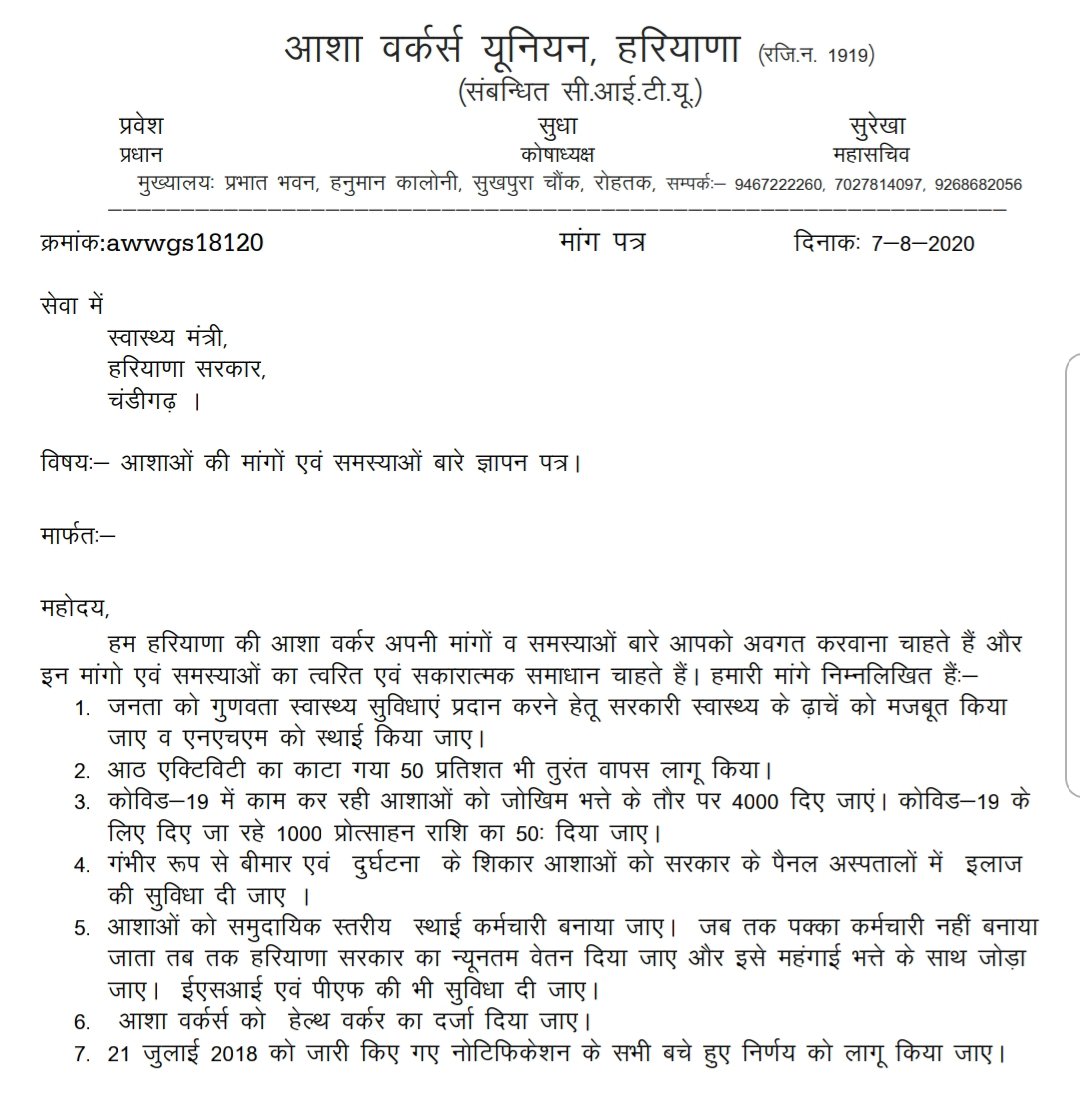Domestic Workers in India are not covered under any national law that guarantees decent work conditions. #InternationalDomesticWorkersDay
Only laws applicable to them are Unorganized Social Security Act, 2008, Sexual Harassment law and Minimum Wages schedules in some states. #InternationalDomesticWorkersDay
7 states have introduced minimum wages for domestic workers: Andhra Pradesh, Bihar, Jharkhand, Karnataka, Kerala, Odisha and Rajasthan #InternationalDomesticWorkersDay
3 states have set up Welfare Boards for Domestic Workers to access social security benefits: Kerala, Maharashtra & Tamil Nadu. #InternationalDomesticWorkersDay
In 2011, India voted in favour of the Domestic Workers Convention (No. 189) of @ilo but never ratified it after.
The convention is the 1st labour standard laying down minimum labour protections.
The convention is the 1st labour standard laying down minimum labour protections.
The labour standard includes the right to a written contract, minimum wages, limited working hours & safe working conditions.Only 11 countries ratified the Convention: Bolivia, Ecuador, Guyana, Germany, Italy, Mauritius, Nicaragua, Paraguay, Philippines, South Africa & Uruguay.
A draft National Policy on domestic workers is under consideration in the Central Government, according to the Labour Minister in Lok Sabha. #InternationalDomesticWorkersDay
This includes: Inclusion in existing legislations, Right to unionise, safety etc. Read more here:
http://164.100.24.220/loksabhaquestions/annex/171/AU4626.pdf
#InternationalDomesticWorkersDay
http://164.100.24.220/loksabhaquestions/annex/171/AU4626.pdf
#InternationalDomesticWorkersDay
New Draft policy proposes:
1) Inclusion of Domestic Workers in the existing legislations.
2) Domestic workers will have the right to register as workers. Such registration will facilitate their access to rights & benefits accruing to them as workers.
1) Inclusion of Domestic Workers in the existing legislations.
2) Domestic workers will have the right to register as workers. Such registration will facilitate their access to rights & benefits accruing to them as workers.
3) Right to form their own associations, trade unions.
4) Right to have minimum wages, access to social security, protection from abuse, harassment, violence.
5) Right to enhance their professional skills
#InternationalDomesticWorkersDay
4) Right to have minimum wages, access to social security, protection from abuse, harassment, violence.
5) Right to enhance their professional skills
#InternationalDomesticWorkersDay
6) Protection of Domestic Workers from abuse and exploitation.
7) Domestic Workers to have access to courts, tribunals, etc.
8) Establishment of a mechanism for regulation of concerned placement agencies. #InternationalDomesticWorkersDay
7) Domestic Workers to have access to courts, tribunals, etc.
8) Establishment of a mechanism for regulation of concerned placement agencies. #InternationalDomesticWorkersDay
• • •
Missing some Tweet in this thread? You can try to
force a refresh







